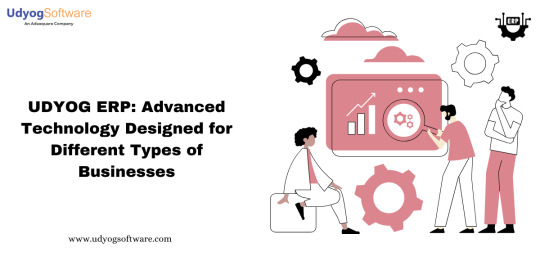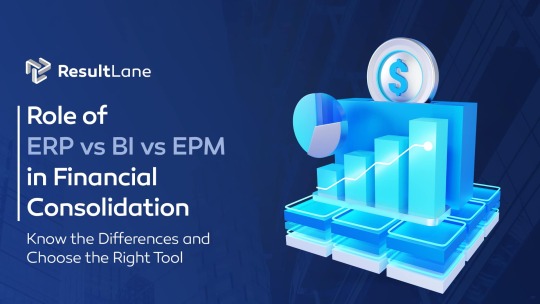#accounts payable transformation software
Explore tagged Tumblr posts
Text
With Innrly | Streamline Your Hospitality Operations

Manage all your hotels from anywhere | Transformation without transition
Managing a hotel or a multi-brand portfolio can be overwhelming, especially when juggling multiple systems, reports, and data sources. INNRLY, a cutting-edge hotel management software, revolutionizes the way hospitality businesses operate by delivering intelligent insights and simplifying workflows—all without the need for system changes or upgrades. Designed for seamless integration and powerful automation, INNRLY empowers hotel owners and managers to make data-driven decisions and enhance operational efficiency.
Revolutionizing Hotel Management
In the fast-paced world of hospitality, efficiency is the cornerstone of success. INNRLY’s cloud-based platform offers a brand-neutral, user-friendly interface that consolidates critical business data across all your properties. Whether you manage a single boutique hotel or a portfolio of properties spanning different regions, INNRLY provides an all-in-one solution for optimizing performance and boosting productivity.
One Dashboard for All Your Properties:
Say goodbye to fragmented data and manual processes. INNRLY enables you to monitor your entire portfolio from a single dashboard, providing instant access to key metrics like revenue, occupancy, labor costs, and guest satisfaction. With this unified view, hotel managers can make informed decisions in real time.
Customizable and Scalable Solutions:
No two hospitality businesses are alike, and INNRLY understands that. Its customizable features adapt to your unique needs, whether you're running a small chain or managing an extensive enterprise. INNRLY grows with your business, ensuring that your operations remain efficient and effective.
Seamless Integration for Effortless Operations:
One of INNRLY’s standout features is its ability to integrate seamlessly with your existing systems. Whether it's your property management system (PMS), accounting software, payroll/labor management tools, or even guest feedback platforms, INNRLY pulls data together effortlessly, eliminating the need for system overhauls.
Automated Night Audits:
Tired of labor-intensive night audits? INNRLY’s Night Audit+ automates this crucial process, providing detailed reports that are automatically synced with your accounting software. It identifies issues such as declined credit cards or high balances, ensuring no problem goes unnoticed.
A/R and A/P Optimization:
Streamline your accounts receivable (A/R) and accounts payable (A/P) processes to improve cash flow and avoid costly mistakes. INNRLY’s automation reduces manual entry, speeding up credit cycles and ensuring accurate payments.
Labor and Cost Management:
With INNRLY, you can pinpoint inefficiencies, monitor labor hours, and reduce costs. Detailed insights into overtime risks, housekeeping minutes per room (MPR), and other labor metrics help you manage staff productivity effectively.
Empowering Data-Driven Decisions:
INNRLY simplifies decision-making by surfacing actionable insights through its robust reporting and analytics tools.
Comprehensive Reporting:
Access reports on your schedule, from detailed night audit summaries to trial balances and franchise billing reconciliations. Consolidated data across multiple properties allows for easy performance comparisons and trend analysis.
Benchmarking for Success:
Compare your properties' performance against industry standards or other hotels in your portfolio. Metrics such as ADR (Average Daily Rate), RevPAR (Revenue Per Available Room), and occupancy rates are presented in an easy-to-understand format, empowering you to identify strengths and areas for improvement.
Guest Satisfaction Insights:
INNRLY compiles guest feedback and satisfaction scores, enabling you to take prompt action to enhance the guest experience. Happy guests lead to better reviews and increased bookings, driving long-term success.

Key Benefits of INNRLY
Single Login, Full Control: Manage all properties with one login, saving time and reducing complexity.
Error-Free Automation: Eliminate manual data entry, reducing errors and increasing productivity.
Cost Savings: Pinpoint problem areas to reduce labor costs and optimize spending.
Enhanced Accountability: Hold each property accountable for issues flagged by INNRLY’s tools, supported by an optional Cash Flow Protection Team at the enterprise level.
Data Security: Protect your credentials and data while maintaining your existing systems.
Transforming Hospitality Without Transition
INNRLY’s philosophy is simple: transformation without transition. You don’t need to replace or upgrade your existing systems to benefit from INNRLY. The software integrates effortlessly into your current setup, allowing you to focus on what matters most—delivering exceptional guest experiences and achieving your business goals.
Who Can Benefit from INNRLY?
Hotel Owners:
For owners managing multiple properties, INNRLY offers a centralized platform to monitor performance, identify inefficiencies, and maximize profitability.
General Managers:
Simplify day-to-day operations with automated processes and real-time insights, freeing up time to focus on strategic initiatives.
Accounting Teams:
INNRLY ensures accurate financial reporting by syncing data across systems, reducing errors, and streamlining reconciliation processes.
Multi-Brand Portfolios:
For operators managing properties across different brands, INNRLY’s brand-neutral platform consolidates data, making it easy to compare and optimize performance.
Contact INNRLY Today

Ready to revolutionize your hotel management? Join the growing number of hospitality businesses transforming their operations with INNRLY.
Website: www.innrly.com
Email: [email protected]
Phone: 833-311-0777
#Innrly#Innrly Hotel Management Software#Bank Integrations in Hospitality Software#Tracking Hotel Compliance#hotel performance software#hotel portfolio software#Hotel Performance Management Software#hotel reconciliation software#Hotel Data Entry Software#accounting software hotels#hotel banking software#hospitality automated accounting software#hotel automation software hotel bookkeeping software#back office hotel accounting software#hospitality back office software#accounting hospitality software#Hotel Management Accounting Software#Hotel Accounting Software#Hospitality Accounting Software#Accounting Software for Hotels#Hotel Budgeting Software#Automate Night Audit Software#Automate Night Audit Process#Best Hotel Accounting Software#Best Accounting Software For Hotels#Financial & Hotel Accounting Software#Hospitality Accounting Solutions
2 notes
·
View notes
Text

Best Outsourced Accounting Services in the UAE: Elevating Financial Efficiency
Are you feeling overwhelmed by a mountain of financial paperwork? At Nordholm, our Best Outsourced Accounting Services in the UAE act as a beacon, transforming financial challenges into smooth sailing. Let’s say you’re tired of chasing after invoices, and you’re drowning in piles of numbers.
Our Outsourcing Accounting isn't just about crunching numbers; it's your pass to a finely tuned financial machine. Our services streamline your processes with precision, handling bookkeeping, payroll, and invoicing expertly. Picture financial co-pilots guiding you through management intricacies while preserving your sanity.
Our services go beyond mere outsourcing; they're about leveraging expertise. Access a pool of accounting virtuosos armed with cutting-edge tools. Uncovering insights that have the power to revolutionize your business strategies, they bring numbers to life.
Their expertise extends beyond balance sheets; they navigate UAE's financial regulations effortlessly. Bid adieu to sleepless nights over regulatory changes. With their guidance, navigating financial rules becomes as smooth as sailing on a calm sea.
Our outsourcing isn’t just about efficiency; it's a cost-effective wizardry that slashes expenses. Say farewell to hefty in-house costs—from salaries to software expenses. Outsourcing simplifies your financial landscape, eradicating worries about training expenses or software upgrades.
At Nordholm, we merge expertise with knowledge to help you meet UAE's accounting obligations under International Financial Reporting Standards (IFRS).
Our services encompass the preparation and maintenance of daily transactions, including:
Accounts Payable
Bank Reconciliation
General Bookkeeping Duties
Profit & Loss Statement
Accounts Receivable
End of Service Benefit
Payroll Management
Financial Reporting and Analysis
Expert Accounting Advice
#OutsourcedAccounting#FinancialManagement#AccountingServices#BusinessSolutions#FinancialExpertise#BookkeepingServices#BusinessInsights#FinancialConsulting
8 notes
·
View notes
Text
Enhancing Manufacturing Excellence: 6 Key Benefits of SAP Business One
Staying ahead of the competition requires more than just producing high-quality products. It demands efficient operations, streamlined supply chains, and real-time decision-making capabilities. This is where SAP Business One, a robust Enterprise Resource Planning (ERP) solution, steps in to transform the manufacturing sector. In this blog, we will explore six significant benefits that SAP Business One brings to manufacturers of all sizes, from small businesses to mid-sized enterprises.

Better Visibility
One of the primary challenges in manufacturing is maintaining visibility into the complex web of supply chains, operations, and inventory resources. SAP manufacturing software addresses this challenge by providing enhanced visibility through seamless integration with shipping logistics and supply chains. This integration empowers manufacturers with real-time data, enabling them to make well-informed decisions promptly.
Furthermore, the platform offers customized and interactive dashboards that offer a 360-degree view of the entire manufacturing process. This flexibility in analysis and insights allows manufacturers to adapt swiftly to changing customer demands and meet stringent deadlines.
Improved Productivity
SAP manufacturing software incorporates Material Requirements Planning (MRP) functionality, which replaces outdated production scheduling methods with a structured, multilevel production process. MRP also facilitates resource planning for machine maintenance, leading to overall productivity improvements.
Additionally, the MRP wizard streamlines material procurement and production planning, significantly reducing pre-production lead times. This efficiency boost directly contributes to enhanced productivity and better resource utilization.
Cost Control
Cost control is a paramount concern for manufacturing companies. SAP manufacturing software offers a solution by optimizing daily operations, reducing waste, and simplifying processes. Informed decision-making, enabled by SAP manufacturing software, aids in identifying cost-saving opportunities and increasing overall business profitability.
Working Capital Management
Managing working capital is essential for the day-to-day operations of manufacturing companies. SAP manufacturing software offers a comprehensive suite of modules and capabilities that help in managing working capital effectively. This includes overseeing accounts receivables, accounts payables, cash flow, liquidity, and inventory planning.
Customized purchasing reports provide real-time insights into working capital challenges, replacing the traditional year-end or month-end reports. This level of control from SAP services allows manufacturers to make proactive decisions, ensuring the stability of their operations.
Inventory Management
Effective inventory management is critical for manufacturing success. SAP Business One equips manufacturers with advanced warehouse tracking features and real-time stock reports. These features help document stock levels and monitor stock transfers between warehouses, ensuring a lean inventory management approach.
The ERP solution strikes an ideal balance between inventory stock and production capacities, facilitating on-time product deliveries, efficient inventory cost management, and meeting customer demands effectively.
Regulatory Compliance
Manufacturers must adhere to industry regulations at every stage of the manufacturing process, from procurement to final product delivery. SAP Business One plays a crucial role in improving regulatory compliance by integrating these standards into its operations seamlessly.
Furthermore, the platform empowers manufacturers to embed quality control into their manufacturing processes, providing insights into vendor performance and enhancing customer satisfaction.
Conclusion
SAP system emerges as a powerful ally, offering a wide array of benefits to manufacturers. From improved visibility and productivity to cost control, working capital management, inventory optimization, and regulatory compliance, this ERP solution empowers manufacturing companies to thrive in a competitive environment. By embracing SAP Business One, manufacturers can embark on a journey toward excellence, ensuring they meet customer demands efficiently and maintain a strong position in the market.
2 notes
·
View notes
Text
Why Choose Dynamics 365 Finance?
Managing finances efficiently is a priority for any business aiming for growth and stability. Microsoft Dynamics 365 Finance provides a complete solution for financial planning, automation, and reporting, helping organizations stay ahead with real-time insights and improved decision-making.
Automation for Better Efficiency
Manual financial processes slow down operations and increase the risk of errors. Finance Dynamics 365 automates critical tasks such as accounts payable, receivable, and budgeting, ensuring accurate data processing and reducing administrative workloads. With built-in artificial intelligence and predictive analytics, businesses can anticipate cash flow needs and make informed decisions without delays.
Real-Time Financial Insights
Making decisions based on outdated information can cause financial setbacks. Microsoft Dynamics Finance integrates with other Microsoft applications, allowing businesses to access real-time data and track financial performance across multiple departments. With customizable dashboards and AI-driven reports, finance teams gain a clear understanding of revenue, expenses, and profitability at any given moment.
Compliance and Risk Management
Regulatory requirements continue to evolve, making compliance a challenging aspect of financial management. Dynamics 365 Finance simplifies regulatory reporting with automated tax calculations, built-in audit trails, and country-specific compliance features. Businesses can stay compliant with industry standards while minimizing risks associated with financial discrepancies.
Scalability for Growing Businesses
As organizations expand, financial management needs become more complex. Microsoft Dynamics 365 Finance is designed to scale with business growth, offering flexible configurations that adapt to changing financial structures. Whether managing a small enterprise or a multinational corporation, the system provides the necessary tools to streamline financial operations at every stage.
Seamless Integration with Other Systems
Financial software must work well with other business applications to ensure smooth operations. Dynamics 365 Finance connects seamlessly with Microsoft Power BI, Microsoft Teams, and other enterprise solutions, creating a unified ecosystem for data sharing and collaboration. This integration enhances efficiency, allowing finance teams to work with accurate and synchronized data across all platforms.
How VBeyond Digital Supports Businesses
Choosing the right financial management system requires expert guidance and a strategic approach. VBeyond Digital helps businesses implement Microsoft Dynamics 365 Finance with customized solutions that align with organizational goals. With a team of professionals experienced in digital transformation, VBeyond Digital ensures a smooth transition and maximum value from financial technology investments.
Conclusion
Microsoft Dynamics 365 Finance is a powerful tool for organizations seeking automation, real-time insights, compliance support, and seamless integration. Businesses looking to enhance their financial operations can benefit significantly from this solution, especially with expert support from VBeyond Digital.
0 notes
Text
Top 10 Reasons to Learn Oracle Fusion Cloud Financials in 2024.

Oracle Fusion Cloud Financials is one of the most in-demand financial management solutions for businesses worldwide. As enterprises move towards cloud-based solutions, learning Oracle Fusion Cloud Financials has become a valuable skill in the job market. Whether you're an aspiring financial professional or an experienced accountant, mastering this software can open up exciting career opportunities. Here are the top 10 reasons to learn Oracle Fusion Cloud Financials in 2024:
1. High Demand for Oracle Cloud Financials Experts
As more companies migrate to Oracle Cloud, the demand for skilled professionals who can manage and optimize financial processes in the cloud is growing. Organizations across industries are looking for experts to help them transition from legacy systems to Oracle Fusion Cloud Financials.
2. Lucrative Career Opportunities
Professionals with expertise in Oracle Fusion Cloud Financials can secure well-paying jobs in multinational corporations, financial institutions, and IT consultancies. Salaries for Oracle Cloud professionals are competitive, with numerous growth opportunities.
3. Industry-Leading Financial Solution
Oracle Fusion Cloud Financials is an industry leader, providing a comprehensive suite of financial management solutions, including general ledger, accounts payable and receivable, expense management, and financial reporting. Mastering this software ensures you stay ahead in the finance sector.
4. Global Adoption by Enterprises
From small businesses to Fortune 500 companies, organizations worldwide rely on Oracle Fusion Cloud Financials for their financial operations. Learning this software makes you eligible for jobs across different industries and locations.
5. Cloud-Based Advantage
Unlike traditional financial management software, Oracle Fusion Cloud Financials operates entirely on the cloud, offering greater scalability, security, and accessibility. Learning how to use cloud-based solutions prepares you for the future of financial technology.
6. Automation and AI Integration
Oracle Fusion Cloud Financials leverages AI-driven automation for processes such as invoice matching, financial forecasting, and fraud detection. Learning how to utilize these features enhances efficiency and reduces manual work, making you a valuable asset to any organization.
7. Improved Compliance and Risk Management
Financial regulations are becoming more stringent, and organizations need software that ensures compliance with international accounting standards. Oracle Fusion Cloud Financials provides built-in regulatory compliance features, helping professionals manage financial risks effectively.
8. Enhanced Financial Reporting and Analytics
With real-time analytics, dashboards, and reporting tools, Oracle Fusion Cloud Financials empowers users to make data-driven financial decisions. Learning this software equips you with the skills to analyze financial data and generate insightful reports.
9. Versatility and Integration with Other Oracle Products
Oracle Fusion Cloud Financials seamlessly integrates with other Oracle applications such as Oracle HCM Cloud, Oracle Procurement Cloud, and Oracle SCM Cloud. Gaining expertise in this software opens doors to broader ERP-related roles and responsibilities.
10. Future-Proof Your Career
As digital transformation continues to reshape the finance sector, professionals with cloud-based financial management skills will remain in high demand. Learning Oracle Fusion Cloud Financials in 2024 ensures you stay relevant in the evolving job market.
Conclusion
Oracle Fusion Cloud Financials is revolutionizing financial management across industries. With its growing adoption, lucrative career opportunities, and cutting-edge features, now is the perfect time to invest in learning this powerful financial management solution. Whether you're looking for career growth, higher salaries, or global opportunities, mastering Oracle Fusion Cloud Financials will help you achieve your professional goals in 2024 and beyond.
If you're ready to take the next step in your career, consider enrolling in a comprehensive Oracle Fusion Cloud Financials training program today. To Your bright future join Oracle Fusion Financials.
#jobguarantee#oraclefusion#oraclefusionfinancials#financejobs#hyderabadtraining#erptree#financecareers#erptraining#100jobguarantee#careergrowth
0 notes
Text
UDYOG ERP: Advanced Technology Designed for Different Types of Businesses

In the fast-evolving world of business management, staying ahead of the curve is essential. This is where Udyog ERP software development company steps in, providing a versatile, advanced solution tailored to businesses across various sectors. From manufacturing giants to service-oriented industries, Udyog ERP is designed to optimize workflows, enhance productivity, and support decision-making with precision and efficiency. Here’s an in-depth look at how Udyog ERP meets the needs of different business types.
IT and software services business
Udyog ERP software development company is a leading software development company specializing in IT and software services for businesses across various industries. With a focus on providing tailored Enterprise Resource Planning (ERP) solutions, Udyog ERP helps companies streamline their operations, enhance productivity, and improve decision-making through advanced, customizable software. Offering comprehensive services from software development to system integration and ongoing support, Udyog ERP empowers businesses to optimize processes, reduce costs, and achieve long-term growth in an ever-changing digital landscape.
Robotics and automation business
Robotics, a leading software development company, specializes in integrating Udyog ERP software development company with robotics and automation solutions to revolutionize business operations. By combining advanced automation technologies with ERP systems, robotics enables businesses to streamline processes, enhance operational efficiency, and reduce human error. Their expertise in Udyog ERP allows businesses in various sectors, including manufacturing, logistics, and service industries, to harness the power of robotics and automation for smarter, more agile operations, helping them stay competitive in an increasingly digital world.
Service Industry
The service industry, including IT services, consulting firms, and healthcare, demands agility in handling projects, resources, and client management. Udyog ERP’s project management tools and resource planning modules support service-based businesses in delivering timely, high-quality services. Notable features include:
Project Management for tracking project progress and resource allocation.
Time and Attendance Management to track employee work hours and project timelines.
Financial Management to accurately bill clients, track payments, and ensure profitability.
With these capabilities, service companies can keep their operations organized, improve client satisfaction, and ensure profitability.
Financial and Accounting Firms
For businesses that revolve around finance, Udyog ERP software development company powerful accounting modules are invaluable. These modules are designed to handle everything from basic bookkeeping to more complex financial forecasting and reporting. Features such as:
General Ledger, Accounts Payable & Receivable for detailed financial tracking.
Tax Management for calculating and managing tax liabilities across different regions.
Financial Reporting to generate insightful reports for compliance and decision-making.
With Udyog ERP software development company, financial firms can ensure accuracy in financial records while adhering to regulatory requirements.
The time for integrating a smart, efficient solution like UDYOG ERP is now. If you’re ready to elevate your business operations, improve decision-making, and drive growth, adopting Udyog ERP could be the transformative step you need. Reach out to a Udyog ERP consultant today and discover how this advanced technology can be tailored to your business needs. Don’t let manual processes hold you back — unlock the power of automation and integration with Udyog ERP and take your business to the next level.
0 notes
Text
RPA vs. AI: Choosing the Right Intelligent Automation Solution

Businesses today are under constant pressure to operate faster, more efficiently, and at a lower cost. Automation has become the cornerstone of this transformation, helping companies eliminate manual processes, reduce errors, and scale their operations. Among the many automation tools available, Robotic Process Automation (RPA) and Artificial Intelligence (AI) stand out as two of the most popular solutions.
Though both technologies fall under the umbrella of intelligent automation, they are fundamentally different in their capabilities, applications, and benefits. For organizations considering automation, understanding the nuances of RPA and AI is critical to making the right investment.
This blog takes a deep dive into RPA, AI, and their use cases, while also guiding you on how to choose the best solution for your business needs.
What is Robotic Process Automation (RPA)?
RPA refers to software technology that mimics human actions to perform routine, repetitive, and rule-based tasks. These software bots are programmed to interact with existing applications, such as CRM systems, ERP software, or email platforms, much like a human worker would.
Unlike traditional automation tools that require deep system integrations, RPA is lightweight and non-invasive, meaning it works with your current systems without major changes.
Key Features of RPA
Rule-Based Automation: RPA excels in scenarios where processes follow strict, defined rules, such as data entry or invoice processing.
User-Friendly Design: Many RPA platforms offer low-code or no-code interfaces, allowing business users to design automation workflows with minimal technical expertise.
System Independence: Bots can work across various software platforms without requiring API-based integrations.
Advantages of RPA
Ease of Implementation One of the biggest advantages of RPA is its simplicity. Businesses can deploy RPA bots quickly without needing to overhaul their IT systems. This makes it a low-risk option for companies new to automation.
Cost Savings By automating mundane tasks, companies can reduce the need for manual intervention, cutting down labor costs and reallocating resources to higher-value tasks.
Accuracy and Reliability Unlike humans, RPA bots don’t get tired or make mistakes when performing repetitive tasks. This ensures high accuracy, which is particularly valuable in data-sensitive industries like finance and healthcare.
Scalability RPA is highly scalable, enabling businesses to deploy more bots as the workload increases. This is particularly useful during seasonal peaks or in industries with fluctuating demands.
Use Cases of RPA
RPA is highly effective in automating tasks that involve repetitive, structured workflows. Common examples include:
Accounts Payable: Automating invoice data entry, payment approvals, and reconciliations.
Human Resources: Streamlining tasks like employee onboarding, updating employee records, and payroll management.
IT Support: Automating ticket generation, password resets, and system monitoring.
Customer Support: Automating routine responses, such as order status updates or refund requests.
While RPA offers immense value, it is inherently limited to structured data and predefined rules. When processes require cognitive decision-making, RPA alone isn’t enough.
What is Artificial Intelligence (AI)?
Artificial Intelligence is a branch of computer science that focuses on building systems capable of performing tasks that would normally require human intelligence. This includes learning from data, understanding natural language, recognizing images, and making decisions based on patterns.
Unlike RPA, which follows rigid rules, AI can learn and adapt. This makes it a powerful tool for businesses looking to process unstructured data or gain actionable insights from large datasets.
Key Features of AI
Learning and Adaptation: AI systems use techniques like machine learning to improve their performance over time.
Versatility: AI handles complex tasks such as natural language processing (NLP), image recognition, and predictive analytics.
Unstructured Data Handling: Unlike RPA, AI can process unstructured data, such as emails, social media posts, or audio recordings.
Advantages of AI
Cognitive Capabilities AI enables systems to think, reason, and make decisions, opening the door to automating complex processes that require judgment or problem-solving.
Improvement Over Time AI algorithms learn from data and improve as more information becomes available. For example, a recommendation engine becomes more accurate the longer it’s in use.
Data-Driven Insights AI helps organizations analyze large datasets to uncover patterns, predict outcomes, and support decision-making. This is particularly valuable for industries like healthcare, retail, and finance.
Personalization By analyzing user behavior, AI can deliver personalized customer experiences, such as recommending products or tailoring marketing campaigns.
Use Cases of AI
AI is versatile and can be applied across a wide range of business scenarios, including:
Customer Support: AI-powered chatbots and virtual assistants can handle customer inquiries in real-time, reducing the workload on human agents.
Fraud Detection: AI algorithms analyze transaction patterns to identify suspicious activity in real-time.
Predictive Maintenance: In manufacturing, AI can predict equipment failures based on sensor data, reducing downtime.
Healthcare: AI-powered systems assist in diagnostics, drug discovery, and patient care personalization.
How RPA and AI Work Together
Although RPA and AI are distinct technologies, they complement each other beautifully when combined. Together, they create a comprehensive automation framework known as Hyperautomation.
Why Combine RPA and AI?
End-to-End Automation: RPA handles structured, rule-based processes, while AI deals with unstructured data and decision-making.
Enhanced Capabilities: AI adds cognitive intelligence to RPA, allowing bots to handle complex tasks like sentiment analysis or document interpretation.
Future-Proofing: Combining RPA and AI creates a scalable, future-ready automation ecosystem.
An Example of Combined Use Case
Invoice Processing: AI extracts key information from invoices (even with varying formats) using OCR and NLP. RPA then inputs this data into the accounting system and triggers payment workflows.
How to Choose the Right Automation Solution
Selecting between RPA, AI, or a hybrid approach depends on your business needs. Consider the following factors:
Choose RPA If:
Your processes are rule-based and repetitive.
You deal primarily with structured data.
You’re looking for a quick, cost-effective automation solution.
Choose AI If:
Your processes involve decision-making or unstructured data.
You need insights from data analysis or predictive analytics.
You aim to create adaptive, intelligent workflows.
Combine Both If:
You require automation across diverse processes involving both structured and unstructured data.
You want to future-proof your business with intelligent, scalable automation.
Conclusion
The choice between RPA and AI depends on the specific challenges and goals of your organization. While RPA is an excellent starting point for automating rule-based tasks, AI brings intelligence, adaptability, and innovation to your operations. For many businesses, a combination of RPA and AI delivers the best results, enabling end-to-end process automation.
If you’re ready to explore intelligent automation solutions, contact Charter Global to discuss how we can tailor an automation strategy to fit your unique needs.
Book a Consultation.
Or email us at [email protected] or call +1 770–326–9933.
0 notes
Text
Every Month-End Close Checklist for Finance & Accounting Teams

Is "month-end close" a daunting term for your finance team? You're not alone!
Many accountants find it stressful, but with a solid plan, it doesn't have to be. Here's a concise checklist to ensure a smooth and accurate month-end close:
1. Pre-Close Preparation 🗂️
Gather Documentation: Collect all invoices, receipts, and expense reports 3-5 days before closing.
Review Transactions: Identify and rectify any missing or duplicate entries 3 days prior.
Team Communication: Ensure all departments submit their inputs 2 days before closing.
Pro Tip: Utilize shared folders or accounting software to centralize documents and enhance visibility.
2. Reconciliation of Accounts 🔄
Bank Reconciliation: Align bank statements with recorded transactions; promptly address discrepancies.
Accounts Payable & Receivable: Confirm all outstanding invoices are accounted for and follow up on overdue receivables.
Fixed Assets: Update asset registers and calculate monthly depreciation.
Watch Out: Small discrepancies can escalate; timely follow-ups are crucial for cash flow.
3. Review and Adjust Entries ✏️
Accruals and Prepayments: Record and allocate revenues and expenses to the correct periods.
Currency Adjustments: Adjust for foreign exchange rate changes if dealing with multiple currencies.
Quick Tip: Accounting automation tools can significantly reduce manual errors.
4. Generate and Analyze Reports 📈
Prepare Reports: Generate trial balances, profit & loss statements, balance sheets, and cash flow reports.
Analyze: Compare actuals against forecasts to identify variances and inform strategic decisions.
Additional Tip: Use visualization tools like graphs to simplify data interpretation for stakeholders.
5. Documentation and Finalization 📝
Maintain Records: Keep detailed work papers for adjustments.
Secure Approvals: Obtain necessary sign-offs before finalizing.
Essential: Proper documentation ensures transparency and audit readiness.
6. Post-Close Activities 📅
Share Reports: Distribute finalized reports to key stakeholders.
Review Process: Conduct a debrief to identify areas for improvement.
Archive Records: Securely store all relevant documents for future reference.
Continuous Improvement: Use team feedback to refine the process for subsequent months.
By following this checklist, you can transform the month-end close from a stressful task into a streamlined process.
Consistency and preparation are your best allies. For a more detailed guide, read the full article here: Month-End Close Checklist.
0 notes
Text
The Benefits of Automating Accounts Payable
Automate accounts payable to eliminate time-consuming manual processes and improve overall efficiency in financial operations. This approach leverages technology to handle repetitive tasks like invoice processing, approvals, and payments, reducing errors and increasing accuracy. Automation ensures that invoices are processed promptly, helping organizations maintain positive relationships with vendors while optimizing cash flow.
One of the key advantages of automation is its ability to provide real-time tracking and reporting capabilities. Businesses can monitor the status of payments, identify bottlenecks, and generate insights to improve decision-making. By replacing manual workflows with automated systems, companies gain a competitive edge by cutting costs, saving time, and reallocating resources to strategic activities.
Why AP Automation is a Game-Changer
AP automation transforms the way businesses manage their accounts payable processes. It simplifies the approval workflow, ensuring invoices are routed to the right personnel for timely sign-off. Automation reduces the risks associated with manual errors, duplicate payments, and fraud, making it a valuable tool for financial teams.
With AP automation, businesses can achieve faster turnaround times, improve vendor relationships, and enhance overall operational efficiency. The technology is scalable, meaning it can adapt to the needs of growing organisations, providing long-term value and stability in managing payables.
Streamlining Processes with Accounts Payable Accounting Software
Accounts payable accounting software offers comprehensive solutions for businesses seeking to modernize their financial workflows. This software helps track invoices, match purchase orders, and automate data entry, significantly reducing the administrative burden on accounts payable teams.
Advanced features, such as custom reporting and real-time analytics, allow companies to gain better insights into their financial operations. By adopting these systems, businesses can ensure compliance with industry regulations while optimising payment cycles and maintaining accurate financial records.
Tailored Accounts Payable Solutions for Modern Businesses
Accounts payable solutions are designed to address the specific challenges faced by organizations in managing their payables. These solutions offer automated workflows, seamless integration with existing systems, and enhanced visibility into the payment lifecycle.
By implementing these solutions, businesses can eliminate inefficiencies, improve communication with vendors, and reduce the risk of late payments. The scalability of these systems ensures they can grow alongside the organisation, making them a valuable asset for long-term financial management.
AI Powered AP Automation for Smarter Financial Management
AI powered AP automation takes traditional automation a step further by incorporating artificial intelligence into accounts payable processes. AI enhances accuracy by learning from historical data and identifying patterns to detect errors or discrepancies automatically.
This technology also provides actionable insights, allowing businesses to optimise payment terms and improve overall cash flow. With AI-driven capabilities, companies can ensure faster processing, better compliance, and increased productivity, making it an essential tool for modern financial operations.
The Role of Accounts Payable AI in Efficiency
Accounts payable AI introduces a new level of intelligence to financial workflows, helping businesses achieve greater efficiency and accuracy. This advanced technology automates data entry, flags anomalies, and prioritizes invoices based on urgency, enabling teams to focus on strategic tasks.
By integrating AI into accounts payable processes, organisations can reduce operational costs and ensure timely payments, ultimately improving vendor relationships and operational performance. The use of AI also helps in maintaining compliance and creating a transparent, streamlined workflow.
AP Automation Software for Future-Ready Financial Operations
AP automation software provides businesses with an all-in-one platform to manage invoices, payments, and approvals efficiently. With intuitive interfaces and robust functionalities, this software eliminates bottlenecks and improves workflow consistency.
Companies leveraging AP automation software benefit from faster invoice processing times, reduced errors, and comprehensive reporting capabilities. By adopting this technology, businesses can future-proof their accounts payable processes, ensuring scalability and adaptability to evolving financial demands.
#sage x3 distribution#sage x3 cannabis#sage x3 food and beverage#food beverage erp software#distribution erp software#sage
0 notes
Text

How SAP Software Revolutionizes Accounting and Financial Management
Introduction SAP ERP has transformed accounting and financial management by providing integrated solutions that streamline processes, enhance accuracy, and drive business growth. With advanced functionalities and real-time data capabilities, SAP is a game-changer for organizations. For those seeking expertise, PROMPT EDIFY AFRICA (PTY) LTD is the best SAP training center in South Africa. Our ISO 9001:2015-certified Quality Management System, accredited by EGAC, ensures excellence in delivering top-notch SAP professional training.
Key Highlights
Streamlined Financial Processes SAP ERP automates and integrates financial processes, from accounts payable to treasury management. SAP training empowers professionals to leverage these tools effectively, driving efficiency and reducing manual errors.
Real-Time Financial Insights With real-time analytics, SAP software provides organizations with actionable insights into financial performance. Enroll in SAP online or classroom training at PROMPT EDIFY to master these advanced features.
Effective SAP Implementation Successful SAP implementation ensures seamless integration of financial modules across departments. PROMPT EDIFY offers tailored programs to equip learners with the skills needed for implementation success.
Enhanced Compliance and Reporting SAP software simplifies regulatory compliance and financial reporting, ensuring adherence to international standards. Our SAP corporate training prepares teams to navigate these complexities confidently.
Why Choose PROMPT EDIFY AFRICA (PTY) LTD? PROMPT EDIFY provides the most comprehensive SAP training in South Africa, combining industry expertise with cutting-edge curriculum. Our globally recognized certifications set you apart in the competitive financial management field.
Conclusion
SAP ERP revolutionizes accounting and financial management, offering unparalleled efficiency, accuracy, and insights. Whether you're an individual or a corporate team, trust PROMPT EDIFY AFRICA (PTY) LTD for the best SAP professional training to elevate your expertise and career.
(+91) 99932 86938 [email protected] www.promptedify.com
#sap modules#sap consulting services#sap course#sap certification#sap online training#sap fico course#sap s/4 hana finance course#sapconsultant#sap_certification#career in sap
0 notes
Text

Unveiling the Power of Outsourced Accounting Services by Nordholm
Are you submerged in a sea of financial paperwork, desperately seeking a lifeboat? We offer a beacon of hope through our unparalleled Outsourced Accounting and Bookkeeping Services in the Dubai. No more chasing invoices or drowning in numerical chaos – we transform financial challenges into a seamless journey.
Beyond mere number-crunching, our services act as the catalyst for your financial engine's optimal performance. Imagine having financial co-pilots manoeuvring you through intricate management processes, ensuring sanity amidst complexity.
We're not just outsourcing; we're elevating your financial strategies with expert precision. Access a pool of accounting virtuosos armed with cutting-edge tools. These experts don't just handle your books; they breathe life into numbers, revealing insights that revolutionize your business strategies.
Navigating UAE's financial regulations becomes a breeze with our seasoned expertise. Bid adieu to sleepless nights over regulatory changes. Our guidance ensures smooth sailing through the evolving financial landscape, ensuring compliance without hassle.
Outsourcing Accounting with us isn't just about efficiency; it's a wizardry that slashes expenses. Say goodbye to in-house costs – from salaries to software expenses. We simplify your financial landscape, eliminating worries about training or software upgrades. Combine our expertise with comprehensive knowledge to meet the UAE's Accounting and Bookkeeping requirements aligned with International Financial Reporting Standards (IFRS).
Our Services
Accounts Payable
Bank Reconciliation
General Bookkeeping Duties
Profit & Loss Statement
Accounts Receivable
End of Service Benefits
Payroll Management
Financial Reporting and Analysis
Expert Accounting Advice
Advantages of choosing us for Outsourced Accounting:
Timely Service: High-quality service delivered promptly.
Stability: Your data and accounts are secure with a licensed service provider.
Affordable & Cost-Effective: Small and medium enterprises benefit from cost-effective solutions without the overheads of hiring in-house accountants.
Outsourcing your Accounting and Bookkeeping needs to Nordholm is the gateway to financial optimization in the Dubai. We grasp the intricacies of the local business terrain, offering expertise that goes beyond numerical figures. Enhance your financial efficacy – opt for Nordholm as your ally in maneuvering the intricate accounting complexities within the UAE.
#OutsourcedAccounting#FinancialManagement#AccountingServices#BusinessSolutions#FinancialExpertise#BookkeepingServices#BusinessInsights#FinancialConsulting
5 notes
·
View notes
Text
Role of ERP vs BI vs EPM in Financial Consolidation: Know the Differences and Choose the Right Tool
Introduction
The growing business scale in the era of big data and digital transformation demands something more than classic techniques of making decisions. Imagine this: Your team is working overtime to close the quarter, but despite your best efforts, numbers aren’t adding up. The financial reporting system you rely on is slow, clunky, and doesn’t give you the insight you need to make critical decisions.
What solutions will fix this recurring monthly problem? How will I get actionable insights to make better forecasts? What will help me to consolidate the processes and operations? You might be wondering about these questions after the gruelling report-making days are over.
This blog is about helping you understand better what is EPM, what is BI, how they differ from ERP and what works best for my organization.

The right tool could make all the difference, but choosing wisely requires a deeper understanding of how each works. Let’s break it down and help you make the right choice for your business.
What is EPM?
Enterprise performance management i.e. EPM software is a suite designed to assist management processes like planning, modeling, and consolidation of data from single or multiple instances of ERP systems that an enterprise can utilize to improve its profits and performance. EPM software specializes in budgeting, forecasting and financial management. Generally, it is driven under the leadership of the CFO or finance department.
EPM aids the CFO and finance department in creating initial budgets and coordinating the planning across the organization. Business strategy and execution can be aligned.
Key EPM Functionalities
1.Budgeting & Target Setting: Helps CFOs and finance teams set initial budgets and targets.
2.Cross-Department Planning: Coordinates financial and operational planning across the organization.
3.Financial Consolidation: Aids in gathering financial and operational results quickly for timely decision-making.
4.Advanced Analytics: Supports modeling and analytics for data-driven insights and scenario planning to assess potential outcomes.
5.Simplified Auditing: Streamlines and accelerates the financial auditing process.
What is BI?
Business Intelligence (BI) refers to the systems and processes used by organizations to analyze data, extract insights, and drive strategic decision-making. An effective BI practice empowers everyone in the organization — from executives to front-line staff — to make informed decisions based on a shared, reliable source of data.
It overlaps with several data-driven disciplines, and understanding these differences is crucial for maximizing their combined value. At its core, BI fuels Enterprise Performance Management (EPM) by providing the data and analytics needed for effective financial and operational planning.
BI tools analyze, manipulate, and report on data, and support a wide range of business needs, including EPM. Most EPM systems rely on BI-generated insights and data, either built upon or fed by BI software.
Key BI Functionalities
1.Performance measurement: Multiple KPIs and metrics which are useful for the overall business functions like accounts payable or inventory are tracked and reported with ease.
2.Business process optimization: BI tools aid in identifying inefficiencies and bottlenecks in the operational and transactional data. This helps managers to understand and analyze data in a refined manner.
3.Predictive and trend analysis: BI tools are able to use historical data to identify patterns and trends that aid organizations in making proactive and data-driven decisions.
4.Reporting and Dashboards: BI generates reports, dashboards, and interactive visualizations to present data in a precise and user-friendly format.
What is ERP?
ERP i.e. Enterprise Resource Planning is a system that focuses on transactional processing and keeps track of the organization’s resources. The ERP system gathers and organizes data on materials wherever the organization interacts with them, from ordering to procurement, and from supply chains to delivery. It is designed to document transactions and monitor resources inside an organization.
The data from an ERP system helps business leaders identify efficiencies and improve processes and resource management. An ERP can overlap with Enterprise Performance Management (EPM), especially in areas like financial planning and decision-making. However, implementing an ERP system can be a lengthy process, often taking months or even years in larger organizations to fully roll out.
Key ERP Functionalities
1.Integration: ERP systems help you with giving a central view of the financial and operational data. ERP is the base for developing BI. The reports and insights provided by ERP can be utilized to optimize resource allocation and use.
2.Automation: One important functionality here is the ability to automate repeated business tasks. For instance, a line of business with a financial module could automatically trigger a month-end report on cash flows and other metrics.
3.Report making: ERP reporting modules can compile operations data into reports aiding the stakeholders to make informed decisions in the light of real-time data.
4.Financial Management: With ERP in place finance leaders can assist management in tracking and analyzing critical business data. Capital projects, funding, cash management, and other departments can make a collaborative decision.
Continue reading : ResultLane.ai
0 notes
Text
How ITAA's SAP FICO Course Can Boost Your Accounting and Finance Career
In today’s fast-paced business environment, the integration of technology into finance and accounting has become imperative. Organizations increasingly rely on specialized software solutions to manage financial data, streamline processes, and ensure compliance. Among these solutions, SAP FICO (Financial Accounting and Controlling) stands out as one of the most robust and widely used systems. For professionals looking to elevate their careers in accounting and finance, enrolling in ITAA's SAP FICO course can be a transformative step.
Why Choose ITAA's SAP FICO Course?
Industry-Relevant Curriculum: ITAA’s SAP FICO course is designed by industry experts who understand the latest trends and requirements in the accounting and finance sector. The curriculum covers essential topics, including general ledger accounting, accounts payable, accounts receivable, asset accounting, cost center accounting, and profit center accounting. This comprehensive approach ensures that learners gain a holistic understanding of the SAP FICO module.
Hands-On Experience: One of the standout features of ITAA's course is its emphasis on practical learning. Students get the opportunity to work on real-world scenarios and case studies, which enhances their understanding and application of SAP FICO in various business contexts. This hands-on experience is invaluable for building confidence and competence in using the software.
Expert Trainers: The course is taught by seasoned professionals with extensive experience in SAP FICO and the finance industry. Their insights and guidance provide students with a deeper understanding of the module and its practical implications in the workplace.
Career Advancement: SAP FICO is in high demand across various industries, including manufacturing, retail, banking, and consulting. Completing ITAA’s SAP FICO course significantly enhances a professional’s resume, making them more attractive to potential employers. Many organizations prioritize candidates with SAP certifications due to the module’s critical role in financial management.
Networking Opportunities: Enrolling in ITAA course also opens doors to valuable networking opportunities. Students can connect with industry peers, trainers, and professionals, which can lead to job placements, internships, and collaborations in the future.
Flexible Learning Options: ITAA understands the diverse needs of its learners. The course offers various learning formats, including online, in-person, and hybrid models, allowing students to choose the mode that best fits their schedules.
Conclusion
In a world where finance professionals are increasingly required to adapt to technological advancements, mastering SAP FICO is essential. ITAA’s SAP FICO course provides a comprehensive, hands-on learning experience that equips participants with the skills and knowledge needed to excel in their careers. By completing this course, accounting and finance professionals can boost their employability, enhance their expertise, and contribute effectively to their organizations.Elevate your career in accounting and finance with ITAA’s SAP FICO course. For more details on how this program can help you reach your professional goals, get in touch with us today.
0 notes
Text
Unlock Financial Excellence with Oracle Fusion Financials Training

In today's competitive financial landscape, businesses strive to adopt technologies that streamline processes, improve accuracy, and drive efficiency. Oracle Fusion Financials has emerged as a transformative solution that equips organizations with robust tools for managing financial operations. By mastering Oracle Fusion Financials Training, professionals can unlock new career opportunities and help organizations achieve financial excellence.
What are Oracle Fusion Financials?
Oracle Fusion Financials is a comprehensive cloud-based suite designed to address businesses' financial management needs. It offers advanced functionalities such as general ledger, accounts payable, accounts receivable, asset management, expense reporting, and financial analytics. The software integrates seamlessly with other Oracle Cloud applications, providing a unified platform for managing business finances.
This solution is particularly popular among organizations seeking real-time insights, automation capabilities, and simplified compliance with financial regulations.
Why Choose Oracle Fusion Financials Training?
As companies transition to cloud-based financial systems, the demand for skilled professionals proficient in Oracle Fusion Financials has surged. Here's why investing in Oracle Fusion Financials Training can be a game-changer for your career:
Industry Relevance:
Oracle Fusion Financials is widely used across industries, from healthcare and retail to manufacturing and services. Training ensures you are equipped with the skills needed to excel in these domains.
Comprehensive Skillset:
Training programs cover the entire financial lifecycle, including setup, configuration, reporting, and troubleshooting, making you a well-rounded expert.
High Demand, Lucrative Roles:
Companies are eager to hire professionals with Oracle Fusion Financials expertise, offering roles like Financial Consultant, ERP Analyst, and Implementation Specialist.
Future-Proof Career:
Oracle is continuously innovating its cloud products. Being skilled in Oracle Fusion Financials ensures you remain relevant in the evolving technological landscape.
Enhanced Productivity:
With formal training, you'll master techniques for optimizing financial operations, automating routine tasks, and enhancing decision-making for your organization.
Key Features Covered in Oracle Fusion Financials Training
Oracle Fusion Financials Training provides in-depth knowledge of the following core components:
General Ledger (GL):
Learn to set up and manage a centralized ledger system for effective financial reporting and compliance. The training covers a chart of accounts, ledger balancing, and intercompany accounting.
Accounts Payable (AP):
Gain expertise in managing supplier invoices, payments, and liability tracking while ensuring timely compliance with tax and regulatory requirements.
Accounts Receivable (AR):
Understand how to handle customer invoices, collections, and credit management efficiently to improve cash flow and customer relationships.
Fixed Assets:
Learn to track asset acquisition, depreciation, and retirement to maintain accurate financial statements.
Cash Management:
Develop skills in managing bank accounts, reconciling statements, and monitoring cash positions in real time.
Financial Reporting and Analytics:
Explore the tools for creating insightful reports, dashboards, and analytics to support strategic financial decisions.
Benefits of Oracle Fusion Financials Training
1. Practical Expertise:
Training programs often include real-time scenarios and live projects, allowing you to gain hands-on experience with Oracle Fusion Financials.
2. Certification Advantage:
Completing the training and earning an Oracle certification enhances your resume and gives you a competitive edge in the job market.
3. Increased Efficiency:
Mastering Oracle Fusion Financials enables you to optimize processes like budgeting, forecasting, and financial consolidation, saving time and resources.
4. Improved Decision-Making:
With advanced analytics and real-time data insights, you can make informed decisions that drive business growth.
Who Should Take Oracle Fusion Financials Training?
This training is ideal for:
Finance professionals aiming to upgrade their skills with cloud-based financial tools.
ERP consultants who want to expand their expertise in Oracle applications.
IT professionals are seeking to specialize in financial systems.
Business analysts are interested in financial process optimization.
Fresh graduates are pursuing careers in financial management and consulting.
Career Opportunities with Oracle Fusion Financials Training
The growing adoption of Oracle Fusion Financials across organizations has created a high demand for skilled professionals. Post-training, you can explore roles such as:
Oracle Fusion Financials Consultant: Implement and configure the software for businesses.
Financial Analyst: Provide actionable insights using Oracle's reporting tools.
ERP Project Manager: Lead financial transformation projects within organizations.
System Administrator: Ensure smooth operation and maintenance of Oracle Fusion applications.
How to Choose the Right Training Provider?
When selecting an Oracle Fusion Financials Training program, look for the following qualities:
Experienced Trainers: Opt for programs led by certified Oracle professionals with real-world expertise.
Comprehensive Curriculum: Ensure the course covers all modules, including advanced analytics and reporting.
Hands-On Practice: Look for training that includes practical exercises and live projects.
Certification Support: Choose a program that helps you prepare for and earn Oracle certification.
Flexible Learning Modes: Whether online or in-person, pick a format that suits your schedule.
Tech Leads IT: Your Trusted Supporter in Oracle Fusion Financials Training at Tech Leads IT, we specialize in delivering top-notch Oracle Fusion Financials Training tailored to meet the needs of specialists and organizations. Here's why you should choose us:
Expert Faculty: Our trainers have years of industry experience and deep knowledge of Oracle applications.
Comprehensive Courses: From beginner to advanced levels, we cover all aspects of Oracle Fusion Financials.
Real-World Scenarios: Gain hands-on experience with live projects to tackle real-world financial challenges.
Certification Guidance: We assist you in achieving Oracle certification to enhance your career prospects.
Flexible Schedules: With online and self-paced options, our courses fit seamlessly into your busy lifestyle.
Conclusion
Mastering Oracle Fusion Financials is an investment in your professional growth. The comprehensive tools and functionalities offered by this cloud-based suite empower organizations to streamline financial operations and make data-driven decisions. By enrolling in Oracle Fusion Financials Training, you equip yourself with the skills to thrive in the dynamic world of finance.
Whether you're an experienced professional or just starting your career, now is the perfect time to leap. Join a trusted training provider like Tech Leads IT and embark on a journey to financial excellence.
#oracle fusion financial training#trending#oracle fusion financial online training#techleadsit#financial oracle courses
0 notes
Text
The Growing Demand for Outsourced Bookkeeping Services
In today’s fast-paced business world, maintaining accurate financial records is more important than ever. Yet, for many businesses, the idea of managing bookkeeping in-house can feel overwhelming, costly, and time-consuming. That’s where outsourced bookkeeping companies come in, providing a smart, efficient, and cost-effective solution for businesses of all sizes.
What Are Outsourced Bookkeeping Companies?
Outsourced bookkeeping companies are third-party service providers specializing in managing financial records, preparing financial reports, and ensuring compliance with tax regulations. These companies often operate remotely, leveraging technology to streamline processes and offer scalable solutions tailored to the needs of their clients.
By outsourcing bookkeeping, businesses can delegate critical tasks such as:
Recording financial transactions
Managing accounts payable and receivable
Reconciling bank and credit card statements
Preparing financial statements
Assisting with payroll processing and tax compliance
Why Are Businesses Turning to Outsourced Bookkeeping?
The popularity of outsourced bookkeeping has grown significantly in recent years, and for good reason. Here are some key benefits driving this trend:
Cost Efficiency Hiring and training an in-house bookkeeping team can be expensive, especially for small and medium-sized businesses. Outsourcing offers a more affordable alternative, eliminating costs associated with employee benefits, office space, and software subscriptions.
Expertise and Accuracy Outsourced bookkeeping companies employ trained professionals who specialize in financial management. Their expertise reduces the risk of errors and ensures compliance with ever-changing financial regulations.
Scalability As businesses grow, their bookkeeping needs often evolve. Outsourced services are flexible and can easily scale up or down depending on the client’s requirements, ensuring that businesses pay only for what they need.
Time Savings Delegating bookkeeping tasks frees up valuable time for business owners and their teams to focus on strategic priorities like growth, customer service, and innovation.
Access to Advanced Technology Many outsourced bookkeeping providers use cutting-edge software and tools to deliver accurate and timely financial insights. These technologies often include automation, cloud-based platforms, and secure data-sharing systems, ensuring efficiency and transparency.
Who Can Benefit from Outsourced Bookkeeping Services?
Outsourced bookkeeping is not limited to any particular industry. Businesses across various sectors, including retail, healthcare, hospitality, and technology, can benefit. It’s especially advantageous for:
Startups: With limited resources, startups can use outsourced services to streamline finances without overspending.
Small Businesses: Outsourcing helps small business owners maintain accurate records while focusing on growth.
Growing Companies: As operations expand, outsourced bookkeeping ensures financial systems remain organized and scalable.
Choosing the Right Outsourced Bookkeeping Company
Not all outsourced bookkeeping companies are created equal. When selecting a provider, businesses should consider:
Experience: Look for companies with a proven track record in your industry.
Technology: Ensure they use secure, modern bookkeeping software.
Custom Solutions: Choose a provider willing to tailor services to your specific needs.
Communication: Reliable communication and regular updates are essential for building trust.
The Future of Bookkeeping Is Outsourced
As technology continues to transform the way businesses operate, outsourced bookkeeping companies are becoming indispensable partners for organizations seeking efficiency and growth. By offloading financial management to professionals, businesses can gain peace of mind, improve accuracy, and focus on what truly matters: achieving their goals.
Whether you're a small business owner or part of a rapidly scaling enterprise, outsourcing your bookkeeping can be the key to unlocking new levels of success.
0 notes